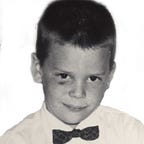“Do you like disco music?”, my new friend, Olga, from Kazakhstan, asked. The way she said it, “deesko music,” with her euro lilt captured my curiosity for a Saturday night party in the Allston-Brighton neighborhood of Boston. A Russian social club was taking over a community center for a disco night. I told her that I did indeed like disco music. Not in a great American songbook way. But more out of sheer respect for the hallucination it draped over the culture as the Eighties said goodbye to the Seventies.
I bartended in Ohio during that era at Whisper, a trendy dance and supper club. It was as clichéd as you might imagine: Brass dance floor. Ferns. Granite coffee tables with inlaid backgammon boards. Elk on the menu.
I once served a drink at Whisper to Lou Ferrigno, the actor from TV’s The Incredible Hulk, and the alter ego of Bill Bixby when he would transition. Another night Ilie Nastase, the Romanian “bad boy of tennis,” showed up on the arm of a Whisper cocktail waitress I knew. “Show him your hands, Illie,” she insisted. Across his knuckles, it said: S-H-I-T — H-E-A-D in ballpoint.
Before the Whisper gig, I deejayed music for high school seniors during weekend open houses at my college campus. Saturday Night Fever had arrived in 1977 and soon that sound began crowding out summer rock albums like Peter Frampton’s Frampton Comes Alive (1976), and But Seriously Folks (1978), the Joe Walsh ode to summer featuring “Life’s Been Good to Me So Far”. Girls shopping for a college that summer wanted to hear The Bee Gee’s sing “How Deep is Your Love”. Boys didn’t.
The disco inferno burnt down much of the rock programming at dance clubs for a period. Bowie and Blondie landed a cross-over punch or two, but the languor of disco dance changed the character of the club vibe. Many rebranded as cocktail dance bars. The Tangerine Lounge. King Tut’s. The Serene. Dixie Electric Company. And Whisper. The music didn’t move me. But the scene did. And bartending was an ideal tip-driven side hustle for seeing and being seen.
Bartending was more about sociology than mixology then. Women in Danskin tops and wraparound skirts simply wanted red wine Coolers or white wine Spritzers for fluid replenishment after “Disco Inferno” (The Trammps, 1976) a sweaty, 11-minute step-aerobic epic. The disco boys just wanted a weak beer, generally Miller Light, at the dawn of the “Great Taste, Less Filling” era, or Coors, notorious for having passed over union picket lines to reach the Midwest from Colorado. When they wanted to take it up a notch, a Cuba libre with a Bacardi Dark call added swagger.
As Olga and I walked down side streets to the venue from her apartment I didn’t get the sense we were in a club district. Passing abrick building with signs for ESL classes in the high windows we turned the corner onto a schoolyard where a yellow Lamborghini was flanked by a row of BMWs and Mercedes-Benzes. A disco throb pulsed through the open doorway.
After a thorough pat down by a Russian gentleman in a black suit with contours that suggested weapons, we moved into a room with a low ceiling and a DJ at the far end positioned in a booth above a small dance floor. More Russian after-prom than discotheque, we found a seat at a long table with white linens and table tents featuring vodka bottle service and smoked salmon.
As the crowd filtered in it became clear that this was less a Russian-themed disco than a nexus for the Russian diaspora of Boston to co-mingle. Men lined the walls watching girls dance with each other to Russian pop music. While the PR team behind the night’s program staged pictures for guests with tall blondes in sequins and leather and handed out business cards.
Olga and I drank vodka and tonics and mostly watched. Until a song started that prompted even the lurkers to engage. Olga pulled me toward the floor. It had a lively dance beat and words in Russian that the girls began singing with their arms in the air. Suddenly the song shifted to English: “American boy, American joy. American boy for all is time. American boy, I’ll run with you, run with you. Moscow goodbye, American boy. Oi, oi, I’ll run with you. American boy.”
The song swung back and forth that way several times between the Russian verse and the English chorus, like a pep rally for American Boys, where I was the only boy from America in the scrum. We danced. Took a break. Danced again. Drank. And after about an hour, “American Boy” came on again, and the tribute reprised.
On the walk home, I asked Olga about the song. But I wanted to know more about it than I could gather from her halting English. “American Boy” had become a hit in 1990, I read online, after its release by the Russian female pop band Kombinaclya. Amid the economic malaise brought on by the dissolution of the Soviet Union its escapist promise spoke to a segment about alternatives.
Thirty years after Whisper and “American Boy” had their moment, Olga and I each enjoyed a reverie you could dance to, but for entirely different reasons.
